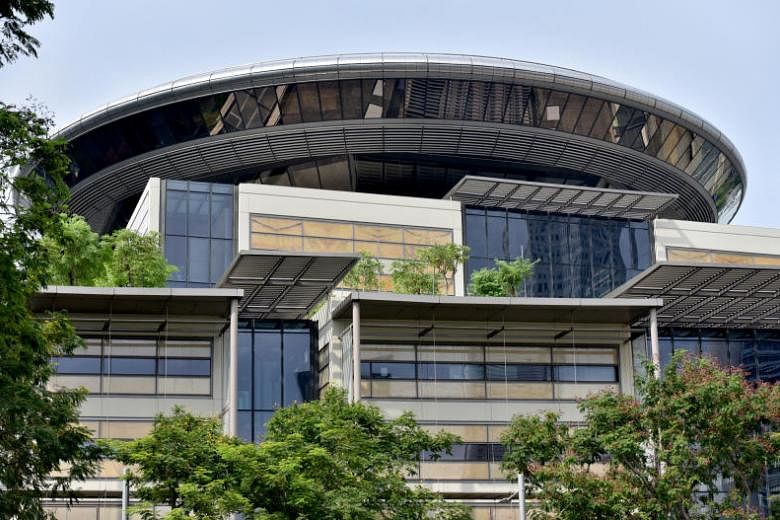SINGAPORE - The prosecution's current practice of bringing two separate charges against an offender in relation to a single block of cannabis-related plant material is "indefensible" and "impermissible", the Court of Appeal said on Wednesday (April 29).
The ruling came as the apex court acquitted a Malaysian drug courier of one charge of importing cannabis mixture, while upholding his conviction on a second charge of importing cannabis.
The sentence of life imprisonment meted out to Saravanan Chandaram remained unchanged, but he will now be given 15 strokes of the cane instead of 24.
In a 102-page written judgment, the three-judge court overruled the interpretation of "cannabis mixture" laid down more than two decades ago in a previous Court of Appeal decision.
The court, comprising Chief Justice Sundaresh Menon and Judges of Appeal Andrew Phang and Steven Chong, held that cannabis mixture meant a mixture of cannabis and another type of plant matter.
The previous interpretation, in 1996, coined cannabis mixture as a mix of different grades of cannabis, or a mix of different parts of the cannabis plant.
Saravanan, who is in his 30s, was arrested at Woodlands Checkpoint on Nov 6, 2014, after driving a Malaysian-registered rental car into Singapore.
Ten bundles were found to be concealed in the car.
An analysis by the Health Sciences Authority (HSA) found that the bundles contained at least 1.38kg of cannabis and at least 3.29kg of fragmented vegetable matter containing cannabinol (CBN) and tetrahydrocannabinol (THC), which are chemical compounds found in cannabis.
Saravanan was charged with one count of importation of cannabis and another count of importation of cannabis mixture.
The dual charges were in line with the prosecution's practice in such cases of cannabis trafficking, importation or exportation.
Offenders would face one charge for dealing with cannabis in respect of the portion found to be purely cannabis and another charge for dealing with cannabis mixture in respect of the portion of vegetable matter found to contain CBN and THC.
Saravanan was tried and convicted of both charges by the High Court, which rejected his claim that he thought the bundles contained contraband tobacco.
He was spared the death penalty, as the judge found that he was a mere courier and the prosecution certified that he had substantively assisted the authorities in disrupting drug trafficking activities.
Saravanan was sentenced to life imprisonment and the minimum of 15 strokes of the cane per charge, resulting in a final 24 strokes, which is the maximum allowed under the law.
He appealed against his conviction and sentence.
The apex court dismissed his appeal on the cannabis charge, finding his contraband tobacco claim to be "incredible".
However, the court overturned his conviction on the cannabis mixture charge, saying that the charge cannot stand.
The court noted that in the course of HSA's testing process, vegetable fragments distinct from pure cannabis are created as by-products.
These created vegetable fragments did not exist in that form at the time Saravanan brought the 10 bundles into Singapore, said the court.
"We do not see how it can be held that at the time of the offence, the appellant knew the nature of the created fragmented vegetable matter or knew that it was cannabis mixture," said the court.
The court added this was significantly compounded by the fact that it was impossible to ascertain accurately how much of the fragments was created as a result of the testing procedure and how much was already present in the bundles Saravanan brought into Singapore.
A spokesman for the Attorney-General's Chambers said the prosecution has stopped preferring charges in relation to cannabis mixture in similar cases involving blocks of cannabis-related plant material, and withdrawn or stood down such charges if they had already been preferred.
This was done after the Court of Appeal observed in March 2018 that there may be difficulties relating to the cannabis mixture charge.


